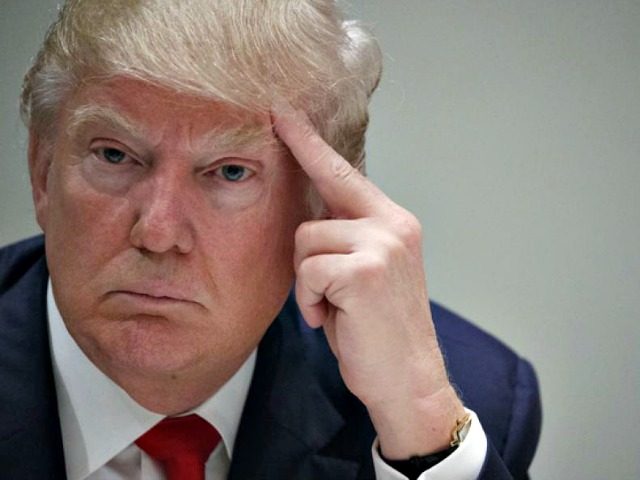Even as a GOP-led Congress irons out its own plans for the repeal and replacement of Obamacare, President Donald Trump could begin the demise of Barack Obama’s signature healthcare law on the very first day of his presidency.
Writing at Forbes, Seth Chandler of George Mason University’s Mercatus Center says that Obamacare’s heavy reliance on the executive branch’s “rulemaking” will allow Trump to use his office and his own “pen” to dismantle several of the healthcare law’s major parts while Congress designs its own bill to undo Obamacare and replace it with free-market legislation.
Chandler writes:
In particular, President Trump should be able to bring Obamacare to its knees on day one simply by stopping payment on something known as “Cost Sharing Reductions [CSR].” If and when he does so, insurers will start pulling out of the Exchanges for the 2017 benefit year and it is not clear how many will re-enter even assuming Obamacare persists.
CSRs are payments the federal government makes to health insurance companies that provide mid-level “silver” plans to Obamacare customers.
Chandler observes Obama has been “paying the multi-billion dollar [CSR] bill” out of an appropriation that is supposed to go to tax refunds, which CSR is not.”
He adds:
There’s been a lawsuit pending in the courts (House v. Burwell) about whether this action by the President violates separation of powers. But, regardless of whether the President may fund cost sharing reductions, it’s a brutal legal argument to say that he must do so. And it would take years of litigation to force a reluctant President to do so. So, on January 20, 2017, President Trump can stop billions of dollars of funding for the ACA that keeps the program alive.
Insight into CSRs shows one of the main reasons why health insurance companies got in bed with the Obama administration in the first place on the ACA. Without this federal funding, insurers would suffer considerable financial losses on the silver-level policies.
“I doubt many insurers set their rates expect[ing] CSR payments to go away,” Chandler explains. “Once CSR payments are stopped, expect many, many insurers to exit the exchanges and cancel their policies in fairly short order.”
Cato Institute healthcare expert Michael F. Cannon agrees that Trump – even prior to taking office – “could announce that the subsidies [CSR] that a federal judge has ruled violate the Constitution” will terminate.
“He could say, ‘We’re going to respect that judge’s ruling, we’re not going to appeal that ruling,’ and that the subsidies are going to end on this date…,” Cannon explains in a podcast. “So, insurance companies are not going to be getting those billions of dollars.”
Chandler and Cannon also agree that Trump can make clear that reinsurance payments to insurers are going to stop as well, especially since the Government Accountability Office (GAO) has said these payments are illegally being diverted to insurers.
Reinsurance payments protect insurers from excessive medical costs. In 2015, the Obama administration even raised reinsurance payouts to insurers that offer ACA-compliant plans to individual Americans. These insurers have agreed to insure some of the sicker Obamacare customers.
“Again, there is a legal dispute as to whether the President even has had the power to be paying insurance companies this money while stiffing the United States…But it is going to be very hard to argue that the President must make these payments,” Chandler writes.
Cannon says Trump could also vigorously fight the lawsuits brought against the federal government by the health insurers – who want to get even more money out of the federal government – instead of just settling them, as the Obama administration has suggested it would.
Trump could also say the exemption Congress has been getting from Obamacare will end on January 20, 2017, Cannon suggests as well.
“By ending these illegal bailouts, and the illegal exemption Congress got from Obamacare, it will build a lot of pressure in Congress to do something,” he says.

COMMENTS
Please let us know if you're having issues with commenting.